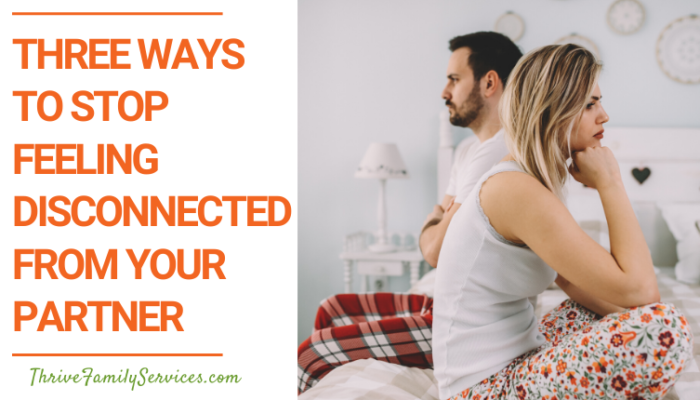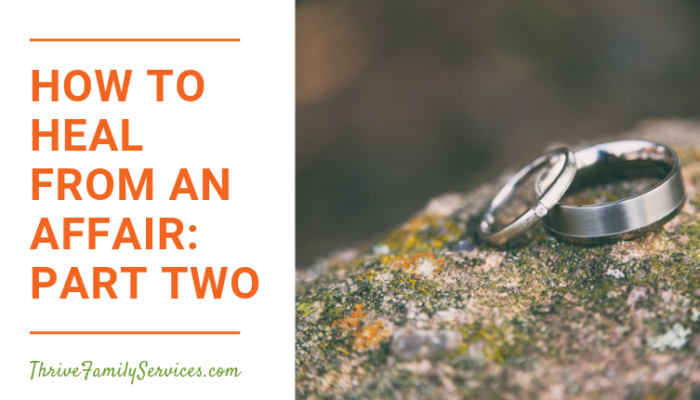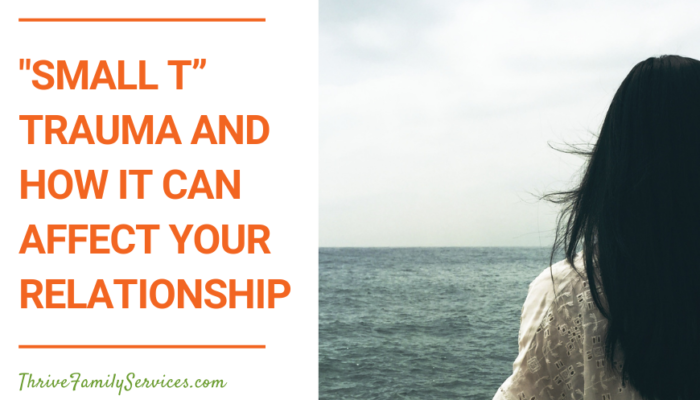Did you know that your brain responds the same way when you’re in physical pain and when you’re feeling disconnected from an important relationship? Both scenarios are threats to our health and happiness. It’s no wonder we can have trouble sleeping or eating when we don’t feel a connection with our most valued people!
Humans are wired for connection. We do better in the world when we have safe, secure, bonded relationships with other people. From birth to death, we benefit from having a few close relationships with people that are supportive, loving, and trusting. We have better moods, do better work, and have better health when we have these healthy connections to others – even more so with a significant other.
Can you remember the last time you and your partner had a bad argument? You were probably feeling a sense of disconnection from them, perhaps thinking things like, “They just don’t want to listen to me,” or “They don’t care enough to want to figure this out!”
When people have incidents when they don’t feel like their partner is with them, it doesn’t feel good.
We get anxious. Sometimes we get angry or sad. We might cry or yell. Maybe we retreat until that feeling of being disconnected passes. Either way, it is unpleasant.
It’s even more unsettling when this feeling is prolonged. Weeks, months, and years can go by where disconnection creeps in and settles down. Partners may stop bringing up issues as a way to not make things worse, but by choosing to do so, they never give their relationship a chance to repair.
Sometimes emotional injuries happen that can lead to prolonged periods of being disconnected. And other times, couples never established a healthy habit of doing things that build a strong emotional connection with one another. Or maybe partners do have a good emotional connection but want to make it better!
Many times, when people want to go from feeling disconnected to connected in their relationship, they think of things they could do that are romantic. They think they should plan a date or buy a nice piece of jewelry to give to their significant other to give that connection a jump-start.
But what if you haven’t asked your partner a question about their inner world for years? What if you haven’t let your partner know how much you appreciate and admire them in months? And what if you haven’t been attuned to your partner’s needs in weeks?
Chances are: If your partner isn’t feeling known, loved, or connected, planning a date or bringing home an expensive gift aren’t going to fix it!
In fact, the dull, mundane moments of a relationship are how deep connection is built. If partners feel known, appreciated, and attuned to each other, they will report higher levels of relationship satisfaction and connection than couples that don’t. When we make these small, seemingly insignificant moments count with one another, we build trust, emotional connection (instead of feeling disconnected), and even a more satisfying sex life!
Sounds easy enough, right? It definitely can be when it becomes a habit!
Here are three things that partners can do for each other to start making it a habit to connect with one another:
1. Understand Your Partner’s World A Little Better
Most couples know what is going on in each other’s physical worlds. They have conversations about logistics, schedules, plans… but they forget to check in with each other’s inner worlds. And knowing your partner’s inner world is what helps you know and understand him or her better. Feeling cut off from their inner world can make you feel even more disconnected in your relationship.
It can be so easy to assume that your partner feels heard and known by you. It can also be easy to default to the information you learned about each other at the beginning of your relationship. Maybe when you first met, your partner preferred Mexican food, so you always take them to a Mexican restaurant for date night. But maybe your partner decided that they preferred Mediterranean food after they took that trip to Greece a couple of years ago and never told you. Granted, you also never asked to make sure your knowledge of your partner is still up-to-date.
Couples who incorporate questions about each other’s inner worlds when talking about their days are more connected than couples who just stick to talking about upcoming or past events. Maybe you know that your partner has a big work trip coming up… but do you know how they feel about it? Are they excited or stressed about it?
Maybe you know that your partner’s family is going through a challenging time… but do you know what your partner needs from you in order to know that you care?
The more you know about each other’s inner worlds, the easier time it will be to understand why your partner does or says what they do. After all, all human behavior makes sense. But when we’re left to use our own perceptions and experiences to make interpretations of other people, we don’t always get it right.
It can be so easy to let your partner’s snappy comment hurt your heart. You might respond, “Don’t be such a jerk!” Or, if you know that your partner just had a fight with their best friend and you know that they get snappy when they are sad, it would be easier to have empathy for the snappiness and say something like, “Come here, let me give you a hug.”
Making sure that you talk about each other’s inner world and making sure that your information about your partner is up-to-date can make a huge difference in your ability to connect with one another. As important as it is to know what’s going on in your partner’s life, it is equally important to know what’s going on in their head and heart.
2. Make a Deposit in Your Partner’s Emotional Bank Account
When our financial bank accounts are full, we feel more secure and are able to relax. Even when tough times come around, we feel better knowing that we can afford the loss and have more confidence that the loss can be recovered. On the other hand, when our financial bank accounts are running low, we are more stressed. Tough times do more damage, and we don’t have as much confidence that we will ever get through it.
The same is true with our emotional bank accounts.
Every reminder that you give your partner that you value them is a deposit into their emotional bank account. If these reminders are scarce or nonexistent, tough times in a relationship can be deal-breakers! If we don’t have the certainty that security in the relationship can be recovered, it is very tempting to just ditch the relationship.
On the other hand, partners that fill each other’s emotional bank account with compliments, appreciation, pride, and love have much more security. When these reminders come often and the bank account is full, it feels good! It doesn’t feel as scary when the relationship goes through tough times because the emotional bank account was more filled. We have more confidence that the relationship will recover.
Do you know what makes your partner feel appreciated? Admired? Respected? Loved?
If you know the answer to these questions, you have a good start. Partners who know how to fill each other up with affirming words, sweet gestures, and good intentions – and choose to do them – report higher levels of connection than couples who don’t.
If you don’t know what fills your partner’s emotional bank account, it would be a good idea to learn. After all, if you don’t know what counts as a “deposit” to your partner, you won’t know how to make your partner feel filled with love.
3. Listen For the Opportunity to Connect in Your Partner’s Words
Most people don’t realize that anything their partner says to them is an opportunity to build connections. Seriously.
As silly or simple as this may sound, it makes sense. Small, daily interactions with other people leave a lasting impression about the state of that relationship. It can make a world of difference if partners share words with each other that are engaging (rather than neutral, nonverbal, or negative) when the other one makes a comment or asks a question. Instead of focusing on how disconnected you feel, think about how you can engage with them.
For example, imagine that you and your partner are grocery shopping when one of you asks, “Do we still have eggs at home?” The other partner has the choice of responding in three ways: positively, neutrally, or negatively.
- A positive response would sound something like, “I’m not sure… How about I grab some more just in case?”
- A neutral response would be a simple shrug of the shoulders or saying, “Dunno.”
- A negative response would be, “How am I supposed to know? You’re the one that made the grocery list!”
Research shows that couples who separate only give each other positive or engaging responses 33% of the time. On the other hand, couples that stay together give each other positive or engaging responses 86% of the time –
What an easy way to make a difference in your relationships!
Couples often get lazy in their responses and tend to lean towards neutral responses out of mindlessness, not meaning to be disengaging. No wonder they feel a disconnected from their partner!
Simply having the awareness and choosing to give responses that are engaging rather than neutral can help improve the quality of conversations and interactions between two people.
It can be a relief to know that making this simple shift will do more for a relationship than a two-week vacation where the quality of conversations remains the same. After all, it is easy to do once you decide you want to do it. Feeling disconnected from your partner doesn’t have to last forever.
In summary, making sure your partner feels known, appreciated, and engaged by you are quick ways to build trust, satisfaction, and connection in your relationship.




